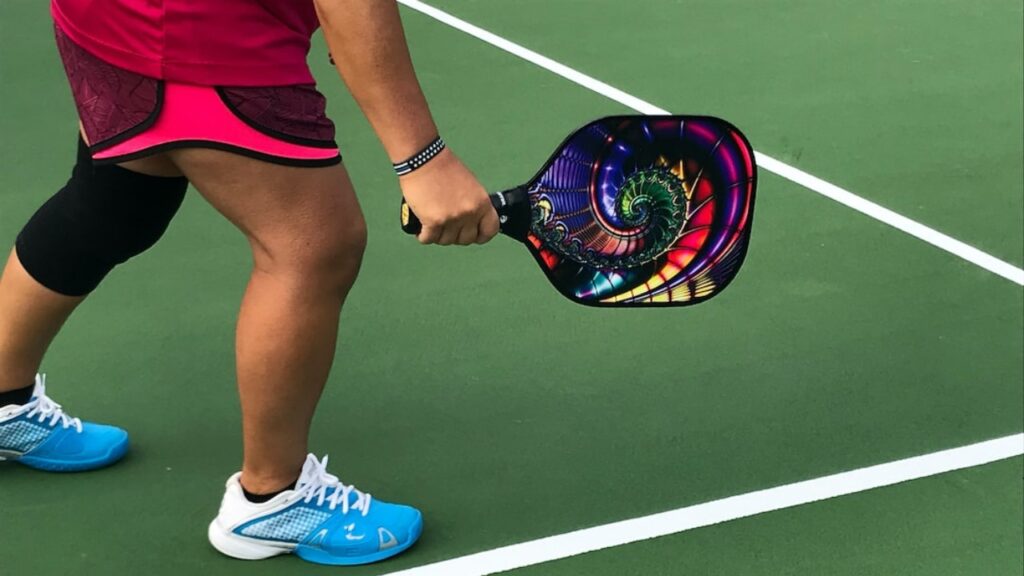Pickleball, a sport that has taken the world by storm, combines elements of tennis, badminton, and table tennis. While it provides players of all ages with an exciting and competitive way to spend their time, it also offers numerous health benefits. In this comprehensive article, we will explore The Health Benefits of Pickleball can contribute to physical, mental, and social well-being, making it much more than just a game.
Physical Fitness: A Full-Body Workout
Cardiovascular Health:
Pickleball is an excellent cardiovascular workout. The constant movement on the court, with its quick rallies and bursts of speed, gets the heart pumping. Engaging in regular pickleball games can help improve cardiovascular health, lower the risk of heart disease, and increase overall endurance.
Strength and Muscle Tone:
Pickleball engages various muscle groups, including the legs, arms, core, and back. The sport involves quick lateral movements, fast paddle swings, and frequent squatting (especially around the non-volley zone). These actions contribute to improved muscle tone and increased strength over time.
Balance and Coordination:
Pickleball requires quick reflexes, agility, and hand-eye coordination. Players must react swiftly to incoming shots, change direction, and adjust their paddle positioning. These activities enhance balance and coordination, which can be especially beneficial for older adults looking to maintain their mobility and reduce the risk of falls.
Calorie Burn:
A typical pickleball game is a calorie-burning activity. Players can burn anywhere from 300 to 500 calories per hour, depending on the intensity of the game. This makes it an effective way to manage weight and promote overall fitness.
Mental Well-being: Sharpening the Mind
Cognitive Function:
Pickleball is not just a physical sport; it’s a mental one too. Players must strategize, anticipate their opponents’ moves, and make quick decisions under pressure. Engaging in such cognitive challenges can help improve memory, problem-solving abilities, and overall cognitive function.
Stress Reduction:
Like all physical activities, pickleball triggers the release of endorphins, which are natural mood lifters. Regular play can help reduce stress and anxiety, providing players with a welcome break from the demands of daily life.
Social Engagement: A Boost for Mental Health:
Pickleball is inherently social. Whether you’re playing with friends or joining a local club, the sport fosters social connections and a sense of community. Social engagement is a crucial factor in mental well-being, as it helps combat feelings of loneliness and isolation.
Social Benefits: Building Connections
Community Building:
Pickleball is known for its inclusive and friendly atmosphere. Many players join local pickleball clubs or groups, and these communities often organize social events and tournaments. This sense of belonging and camaraderie can enhance one’s social life and overall well-being.
Inter-Generational Play:
One of the unique aspects of pickleball is its appeal to a wide age range. It’s not uncommon to see teenagers, adults, and seniors all enjoying the sport together. This inter-generational play promotes inclusivity and allows people of different ages to connect and share their passion for the game.
Teamwork and Communication:
In pickleball, whether you’re playing singles or doubles, effective communication and teamwork are essential. Players learn to collaborate with their partners, strategize together, and provide encouragement. These skills can translate into improved communication and collaboration in other areas of life.
Getting Started with Pickleball: Tips for Beginners
If you’re considering trying pickleball to reap its health benefits, here are some tips for getting started:
- Find a Local Court: Look for a local pickleball court in your area. Many parks and recreation centers offer free or affordable access to courts. You can also check for pickleball clubs or groups that organize games and events.
- Equipment: You’ll need a pickleball paddle, which you can purchase at a sports store or online. Pickleballs are designed specifically for this sport and come in various types, so you may want to try a few to see which one suits your playing style.
- Learn the Basics: While pickleball is easy for beginners to pick up, it’s essential to learn the basic rules and techniques. Consider taking lessons or watching instructional videos online to get started.
- Play with Others: Pickleball is best enjoyed with others, so try to find people to play with. Many communities have social pickleball groups or clubs where you can meet fellow enthusiasts.
- Stay Safe: Like any sport, it’s important to warm up before playing and stretch afterward to prevent injuries. Also, stay hydrated during your games, especially in hot weather.
- Have Fun: Ultimately, the most significant benefit of pickleball is the enjoyment it brings. Approach the game with a sense of fun and a willingness to learn, and you’ll find it to be a rewarding and fulfilling activity.
Conclusion: A Game with Health at its Core
Pickleball is more than just a game; it’s a holistic approach to well-being. Whether you’re seeking physical fitness, mental agility, or social connections, pickleball offers a pathway to achieve these goals while having a blast on the court. So, grab your paddle, hit the courts, and discover the multitude of health benefits that come with embracing this exciting sport. Your journey to a healthier and happier you may just be a pickleball match away.

